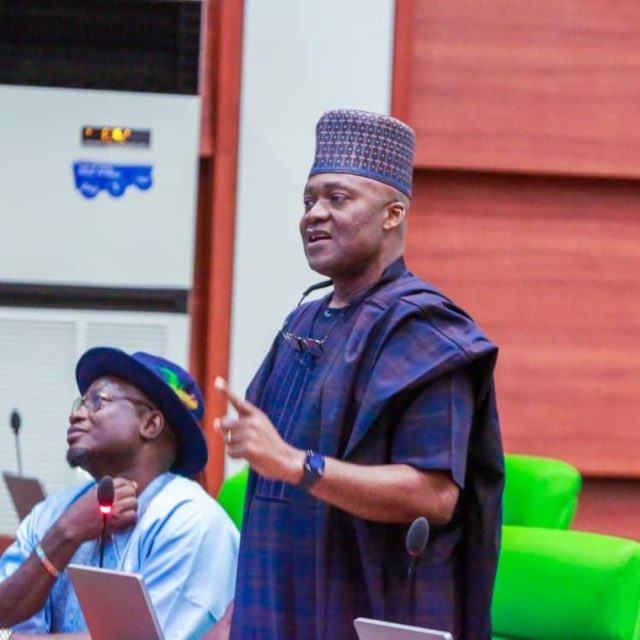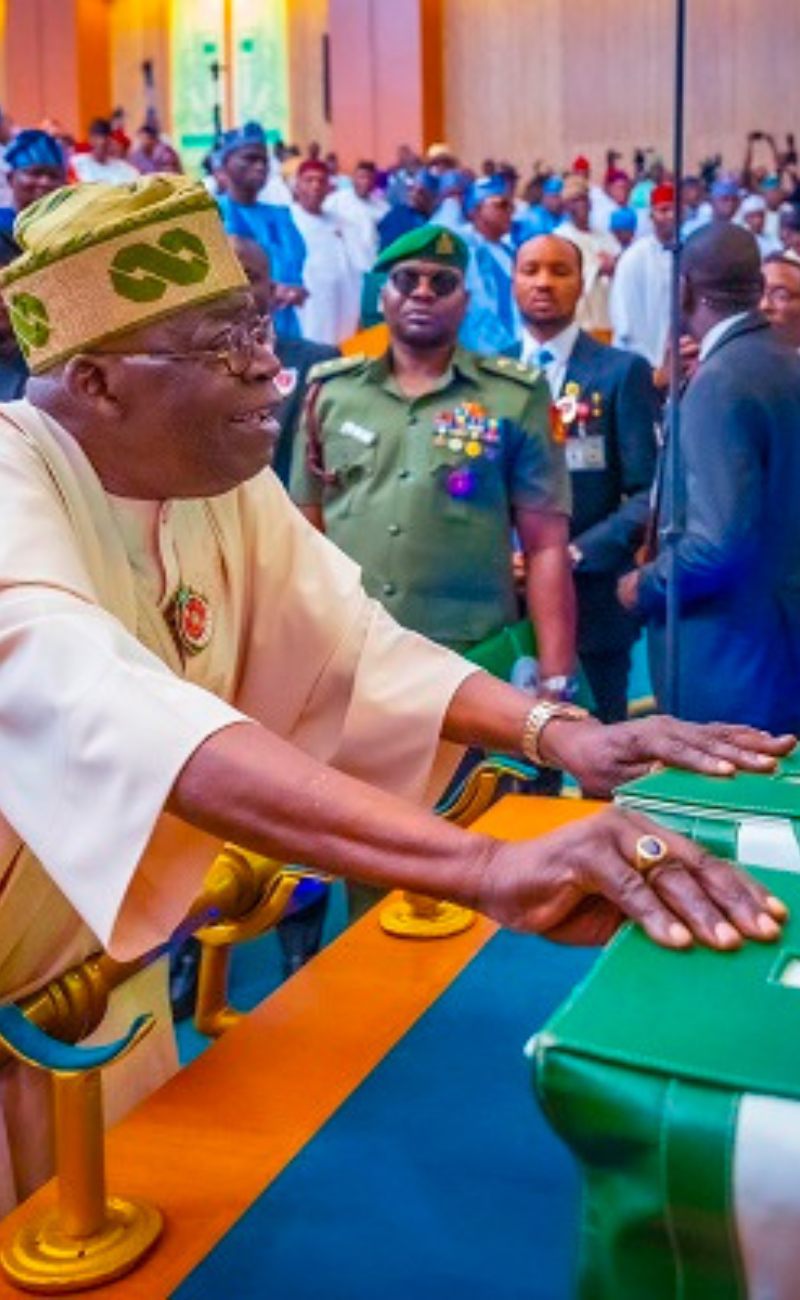Reps Deputy Speaker rules out motion as lacking details and facts, urges sponsor to re-present the motion on a later date
READ ALSO: 10TH NASS: What the early signals indicate in race for Speakership

The House of Representatives has declined the adoption of a motion to constitute an Ad-hoc Committee to probe the Nigerian Communications Commission (NCC) over its inability to promote the spread of telecommunication services in the country.
This followed a motion of urgent public importance brought by Rep. Sergius Ogun (PDP, Edo) during Wednesday’s plenary session titled: ‘Need to Investigate the Non-Provision of Mobile Telecommunication Network Services to the Underserved and Unserved Areas of Nigeria by the Nigerian Communications Commission.’
The lawmaker presented the motion and noted that Section 3 of the Nigerian Communications Act, Cap. N97, Laws of the Federation of Nigeria, 2004, established the Nigerian Communications Commission (NCC) with the responsibility of regulating the communications sector in Nigeria.
He further noted that by the provisions of Section 4 of the Nigerian Communications Act, Cap. N97, Laws of the Federation of Nigeria, 2004, the Nigerian Communications Commission (NCC) is saddled with the responsibility of facilitating investments and entry into the Nigerian market to provide and supply communication services, equipment and facilities.
READ ALSO: ECOWAS Parliament recommends measures to achieve seamless roaming in sub-region
“Aware that in the wake of the rapid expansions of the Global System of Mobile Communication (GSM) in Nigeria, most of the mobile telecommunication network operators were reluctant to move to the rural areas owing to business considerations.
Also aware that the Nigerian Communications Act, Cap. N97, Laws of the Federation of Nigeria, 2004, empowers the Nigerian Communications Commission (NCC) to receive two and a half per cent (2.5%) of the annual turnover of the mobile telecommunication network operators as an annual license renewal fee.
Further aware that the Nigerian Communications Commission (NCC) is expected to utilize the funds generated from the contributions of mobile telecommunication network operators for implementing the Universal Access Strategy and programme in accordance with the Federal government policy of ensuring that telecommunications services penetrate all nooks and crannies of the country,” he concluded.
He informed the House that the Nigerian Communications Commission (NCC), on its own, decided to contribute 40% of the fund generated from the 2.5% annual turnover from mobile telecommunication network operators translating to 1% of the annual turnover of the operators to the Universal Service Provision Fund (USPF), a practice common throughout Africa.
READ ALSO: Counterpart Funding: Reps mandate NDDC to halt release of N15bn to FG
According to him, the Universal Service Provision Fund (USPF) is set up to build infrastructure in the underserved and unserved areas of Nigeria, which can subsequently be made available to the mobile telecommunication network operators, who will, in turn, utilise such infrastructure in serving the areas that are hitherto underserved and unserved.
The lawmaker further informed the House that the first major infrastructure project attempted by the NCC in this regard was the Emergency Response System (ERS), which led to the construction of Emergency Communications Centres all over the country, with little or no results, although the contract was awarded in millions of United States dollars with annual fiscal appropriations for the said project.
He was disturbed by the inability of the Nigerian Communications Commission (NCC) to utilise the Universal Service Provision Fund (USPF) to promote the widespread availability and usage of network services and applications throughout Nigeria as enshrined in Section 112 of the Nigerian Communications Act, Cap N97, Laws of the Federation of Nigeria, 2004, is a great disservice to the nation.
Deputy Speaker, Ahmed Idris Wase, in his ruling, stated that lack of details and facts hindered the motion from being passed and therefore urged the sponsor to re-present the motion on a later day after putting in the necessary work.



